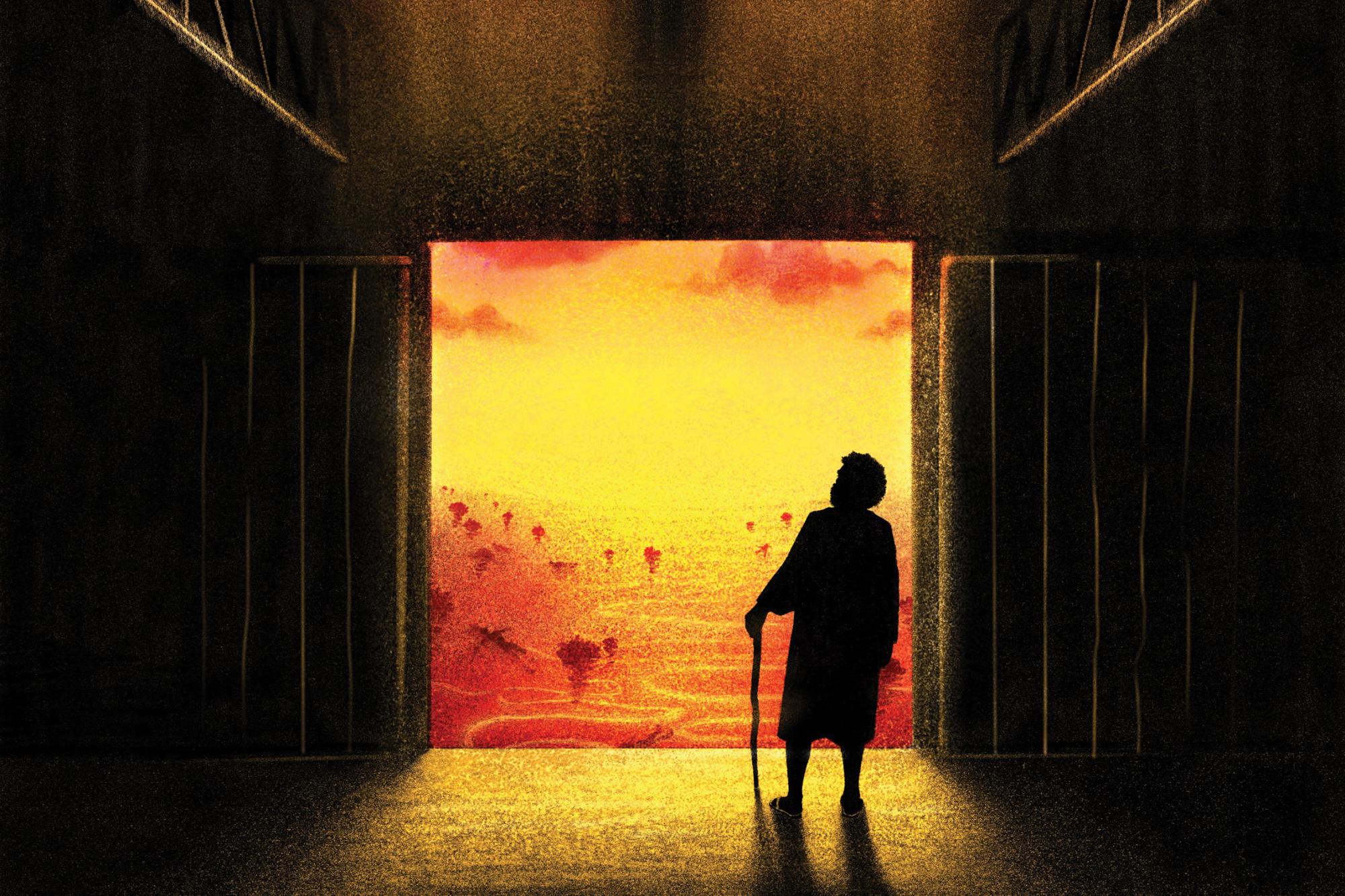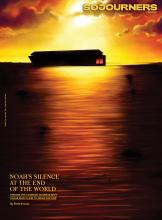
Illustration by Matt Williams
Why Was Noah Silent at the End of the World?
NOAH'S ARK IS a strange children’s story. We decorate nurseries and bedrooms with animals marching two-by-two. The images festoon baby items and fill the pages of countless children’s books. I’ve sat on the floors of many church nurseries playing with babies and Noah’s ark toys and questioned its appropriateness. I’ve thought about Noah and his family closing the door and being sealed inside. I’ve thought about them hearing the sound of rain and the people banging desperately on those closed doors. I’ve thought about the cries and the banging becoming quieter and quieter, about the gut-wrenching silence as the voices were swallowed by the sound of rain.
In a recent essay on her blog, Life is a Sacred Text, Rabbi Danya Ruttenberg notes that while the Bible calls Noah a “righteous man, blameless in his generation” (Genesis 6:9), the Zohar, a Kabbalistic text that first appeared in 13th century Spain, doesn’t see him so favorably. The author ties him not to the survival of the animals but to the deaths of everyone else. “Noah did not plea for mercy on behalf of the world, and they all perished, because the Holy One ... had told him that he and his children would be saved by the ark” (Zohar 1:67b). Noah’s complicity in the people’s deaths is so bad that, in Isaiah, the floodwaters are named after him: “For this is as the waters of Noah to me; as I have sworn that the waters of Noah should no more go over the earth” (Isaiah 54:9, emphasis mine).
Read the Full Article

Got something to say about what you're reading? We value your feedback!


